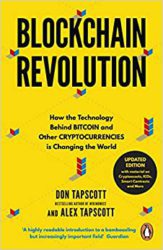Top 10 Fintech Books You Must Read For Information About Innovation
Fintech, short for financial technology, refers to the innovative use of technology in the financial services industry. It encompasses a wide range of applications, products, and services that leverage advanced technology to improve and enhance various financial activities. Fintech has gained significant momentum in recent years, transforming the way individuals and businesses interact with financial services.
Traditionally, financial services were dominated by traditional banks, insurance companies, and other established financial institutions. However, fintech has disrupted this landscape by introducing new business models, streamlined processes, and cutting-edge technologies. It has democratized access to financial services, empowered individuals and businesses, and created a more inclusive and efficient financial ecosystem.
Fintech covers several areas within the financial industry, including:
1. Payments and Transfers: Fintech has revolutionized the way we make payments and transfer money. Digital payment platforms, mobile wallets, and peer-to-peer payment apps enable convenient and secure transactions, reducing the reliance on cash and traditional banking systems.
2. Lending and Financing: Fintech has transformed the lending and financing landscape by introducing alternative lending platforms. These platforms leverage technology, data analytics, and algorithms to assess creditworthiness and provide loans or financing options to individuals and businesses that may have been overlooked by traditional financial institutions.
3. Personal Finance and Wealth Management: Fintech offers tools and applications that help individuals manage their personal finances more effectively. Budgeting apps, investment platforms, robo-advisors, and automated wealth management solutions provide personalized recommendations and guidance based on individual financial goals.
4. Insurtech: Fintech has disrupted the insurance industry with the advent of insurtech. Insurtech companies leverage technology to streamline insurance processes, improve underwriting, automate claims management, and offer customized insurance products based on individual risk profiles.
5. Digital Currencies and Blockchain: Fintech has been a catalyst for the rise of digital currencies, with cryptocurrencies like Bitcoin and Ethereum gaining widespread attention. Blockchain technology, the underlying technology behind cryptocurrencies, has the potential to revolutionize various aspects of the financial industry, including secure transactions, identity verification, and smart contracts.
6. Regtech: Regulatory technology, or regtech, is another area of fintech that focuses on helping financial institutions comply with regulations more efficiently. Regtech solutions use technology, data analytics, and automation to streamline regulatory reporting, monitor transactions for compliance, and manage risk effectively.
Fintech has several key advantages over traditional financial systems. It offers greater convenience, speed, and accessibility, enabling financial services to reach underserved populations and unbanked individuals. Fintech solutions are often more cost-effective, reducing transaction fees and overheads associated with traditional financial institutions. Moreover, fintech promotes innovation, encourages competition, and drives collaboration between traditional financial institutions and fintech startups.
However, the rapid advancement of fintech also brings certain challenges. Security and data privacy are critical concerns in the fintech space, as the use of technology exposes users to cyber threats and potential data breaches. Regulatory frameworks must adapt to the evolving fintech landscape to protect consumers and ensure fair market practices.
Overall, fintech represents a disruptive force that is reshaping the financial services industry. Its continuous evolution and adoption of emerging technologies have the potential to drive financial inclusion, increase efficiency, and create new opportunities for individuals and businesses worldwide.
Also read: Top 10 FinTech Startups That Leverage Techonoly And Innoation In 2023
Why should you learn about FinTech?
Learning about fintech is beneficial for various reasons. Here are some key reasons why you should consider learning about fintech:
1. Career Opportunities: Fintech is a rapidly growing industry that offers a wide range of career opportunities. By learning about fintech, you can equip yourself with the skills and knowledge needed to pursue a career in this dynamic field. Fintech encompasses areas such as programming, data analysis, cybersecurity, user experience design, and financial management, providing diverse job prospects for individuals with different backgrounds and interests.
2. Innovation and Disruption: Fintech is at the forefront of innovation and disruption in the financial industry. By understanding fintech concepts and developments, you can stay informed about the latest trends and technologies that are reshaping the financial landscape. This knowledge can give you a competitive edge in your current job or open up opportunities to be part of disruptive fintech startups or initiatives.
3. Financial Inclusion: Fintech has the potential to increase financial inclusion by making financial services more accessible and affordable. Learning about fintech allows you to understand how technology is bridging gaps in financial services, especially for underserved populations. This knowledge can help you contribute to initiatives that promote financial inclusion, whether it’s through advocating for inclusive policies or developing fintech solutions that address specific needs.
4. Personal Finance Management: Fintech tools and applications offer individuals powerful tools to manage their personal finances effectively. By learning about fintech, you can gain insights into budgeting apps, investment platforms, and other personal finance tools that can help you make informed financial decisions, track your expenses, and plan for your future financial goals.
5. Entrepreneurship and Innovation: Fintech has created a fertile ground for entrepreneurship and innovation. By learning about fintech, you can identify gaps or inefficiencies in the financial industry and develop innovative solutions to address them. Fintech startups have the potential to disrupt traditional financial systems, improve processes, and create value for customers. Understanding fintech can help you identify entrepreneurial opportunities or contribute to innovation within existing organizations.
6. Technological Literacy: Fintech relies on advanced technologies such as artificial intelligence, blockchain, big data analytics, and cloud computing. Learning about fintech allows you to develop a solid understanding of these technologies and their applications in the financial industry. This technological literacy is valuable in today’s digital world, as technology continues to play a significant role in various aspects of our lives.
7. Financial Security and Risk Management: Fintech introduces new risks and challenges in terms of cybersecurity and data privacy. By learning about fintech, you can develop a better understanding of these risks and learn how to protect yourself and your financial information in an increasingly digital world. This knowledge is crucial for individuals and businesses alike, as cybersecurity threats continue to evolve.
In conclusion, learning about fintech offers numerous benefits, including expanded career opportunities, insights into disruptive technologies, the potential to contribute to financial inclusion, improved personal finance management, entrepreneurial prospects, enhanced technological literacy, and increased awareness of financial security and risk management. Fintech is shaping the future of finance, and acquiring knowledge in this field can position you for success in the evolving financial industry.
Also read: Top 5 Fintech Skills In Demand In Blockchain Industry
Top 10 FinTech Books You Must Read
Here are the top 10 FinTech books you must read in 2023:
- The FinTech Revolution by Brett King
This book provides a comprehensive overview of the FinTech industry, covering everything from its history to its current state and future trends. King is a leading expert on FinTech, and his book is a must-read for anyone who wants to understand this rapidly growing industry.
- Fintech: The Third Industrial Revolution by Michael Chui, James Manyika, and Michael Osborne
This book argues that FinTech is the third industrial revolution, and that it is transforming the way we bank, invest, and manage our finances. The authors provide a detailed analysis of the forces driving FinTech innovation, and they explore the implications of this innovation for businesses, consumers, and governments.
- Blockchain Revolution by Don Tapscott and Alex Tapscott
This book provides a comprehensive overview of blockchain technology, and it explores the potential impact of this technology on a wide range of industries, including finance, healthcare, and supply chain management. The authors argue that blockchain is a disruptive technology that has the potential to revolutionize the way we live and work.
- The Age of Cryptocurrency by Nathaniel Popper
This book tells the story of Bitcoin, the first and most successful cryptocurrency. Popper provides a detailed account of the rise of Bitcoin, and he explores the implications of this technology for the future of money.
- Machine Money by Paul Vigna and Michael Casey
This book explores the rise of digital money, and it argues that this technology is poised to revolutionize the way we think about money. Vigna and Casey provide a detailed overview of digital currencies, such as Bitcoin, and they explore the potential impact of this technology on the financial system.
- The FinTech Handbook by David Birch
This book provides a practical guide to FinTech, and it covers everything from setting up a FinTech startup to marketing your FinTech product. Birch is a leading expert on FinTech, and his book is a must-read for anyone who wants to start or work in this industry.
- The Financial Technology Landscape by Karen Webster
This book provides a comprehensive overview of the financial technology landscape, covering everything from the latest trends to the most innovative startups. Webster is a leading expert on the financial technology industry, and her book is a must-read for anyone who wants to stay ahead of the curve in this rapidly changing industry. 
- The Digital Bank by Brett King
This book provides a blueprint for building a successful digital bank. King argues that traditional banks are at risk of being disrupted by FinTech startups, and he provides a roadmap for how traditional banks can adapt to the digital age.
- The Bank of the Future by Richard Turrin
This book explores the future of banking, and it argues that the banking industry is on the cusp of a major transformation. Turrin provides a detailed analysis of the forces driving this transformation, and he explores the implications of this transformation for consumers, businesses, and governments.
- The FinTech Investor by Michael Fertik
This book provides a guide to investing in FinTech startups. Fertik is a leading investor in the FinTech industry, and his book provides insights into how to identify and evaluate FinTech investment opportunities.
These are just a few of the many great FinTech books that are available. If you are interested in learning more about this rapidly growing industry, I encourage you to check out some of these books.
Importance of FinTech for the economy
Fintech plays a crucial role in driving economic growth and development. Here are several key reasons why fintech is important for the economy:
1. Increased Financial Inclusion: Fintech has the potential to extend financial services to underserved populations who have limited or no access to traditional banking services. By leveraging technology and alternative data sources, fintech companies can provide financial services such as mobile banking, digital payments, and microloans to individuals and businesses in remote areas or those excluded by traditional financial institutions. This increased financial inclusion leads to economic empowerment, stimulates entrepreneurship, and fosters economic growth.
2. Efficiency and Cost Reduction: Fintech solutions streamline financial processes, making them more efficient and cost-effective. By automating manual tasks and leveraging digital technologies, fintech reduces operational costs for financial institutions and enables them to offer services at lower fees. This efficiency translates into improved profitability for financial institutions and cost savings for consumers and businesses, thus stimulating economic activity.
3. Innovation and Competition: Fintech fosters innovation and competition within the financial industry. Traditional financial institutions are compelled to adapt and improve their offerings to keep up with the disruptive innovations introduced by fintech startups. This competition drives efficiency, customer-centricity, and the development of new products and services. Ultimately, consumers benefit from a wider range of financial options, better customer experiences, and more competitive pricing.
4. Access to Capital for Startups and Small Businesses: Fintech platforms have revolutionized lending and financing for startups and small businesses. Traditional lending institutions often have stringent requirements and lengthy approval processes, making it challenging for small businesses to access capital. Fintech lenders, on the other hand, leverage technology, data analytics, and alternative credit scoring models to assess creditworthiness and provide quicker and more accessible financing options. This increased access to capital fuels entrepreneurship, innovation, and job creation, contributing to economic growth.
5. Financial Stability and Risk Management: Fintech innovations enhance financial stability and risk management within the economy. Advanced data analytics and machine learning algorithms allow for more accurate risk assessment and fraud detection, reducing the likelihood of financial fraud and systemic risks. Fintech tools also enable better monitoring and management of financial transactions, helping regulatory authorities combat money laundering, terrorist financing, and other illicit activities. Improved risk management promotes a more stable financial system, which is vital for sustainable economic growth.
6. Digital Transformation and Economic Resilience: Fintech is a catalyst for digital transformation across various sectors of the economy. As businesses adopt fintech solutions, they become more agile, efficient, and adaptable to changing market conditions. The digitalization of financial processes and services strengthens the resilience of businesses and the overall economy, enabling them to navigate economic disruptions more effectively. Fintech also facilitates e-commerce and cross-border transactions, boosting international trade and economic integration.
7. Data-Driven Insights and Economic Development: Fintech generates vast amounts of data that can be leveraged to gain valuable insights into consumer behavior, market trends, and economic patterns. This data-driven approach enables policymakers and businesses to make informed decisions and develop targeted policies and strategies to drive economic development. Fintech’s ability to collect, analyze, and utilize data contributes to evidence-based decision-making, fostering economic growth and improving resource allocation.
In conclusion, fintech plays a vital role in the economy by promoting financial inclusion, driving efficiency and cost reduction, fostering innovation and competition, increasing access to capital, enhancing financial stability and risk management, enabling digital transformation, and generating valuable data-driven insights. As fintech continues to evolve and expand, its impact on the economy is expected to grow, driving economic development and creating opportunities for individuals and businesses worldwide.
Also read: Top 5 FinTech Use Cases And Examples In Real World
Future of FinTech
The future of fintech is poised to be even more transformative and impactful. Here are several key trends and developments that are shaping the future of fintech:
1. Continued Innovation: Fintech will continue to be a hotbed of innovation. Emerging technologies such as artificial intelligence (AI), machine learning (ML), blockchain, Internet of Things (IoT), and quantum computing will drive new advancements in financial services. These technologies will enable more sophisticated automation, enhanced data analysis, improved security, and seamless customer experiences. Fintech startups and established financial institutions alike will explore innovative solutions to address evolving customer needs and market demands.
2. Open Banking and API Integration: Open banking initiatives and the use of application programming interfaces (APIs) are reshaping the financial landscape. Open banking promotes the sharing of customer data securely between financial institutions and authorized third-party providers, fostering collaboration and creating opportunities for new products and services. APIs facilitate seamless integration between different financial platforms and systems, enabling personalized and interconnected financial experiences for consumers.
3. Expansion of Digital Currencies: The rise of digital currencies, including cryptocurrencies like Bitcoin and Ethereum, will continue to disrupt traditional financial systems. Central bank digital currencies (CBDCs) are gaining traction, with several countries exploring their implementation. The integration of digital currencies with fintech solutions will revolutionize cross-border transactions, remittances, and payments, offering increased speed, security, and cost-efficiency.
4. Fintech in Emerging Markets: Fintech will have a significant impact on emerging markets, driving financial inclusion and economic growth. Mobile technology and digital platforms will provide access to financial services for unbanked populations, empowering individuals and businesses. Fintech solutions tailored to specific local needs, such as microfinance and mobile payment systems, will thrive in these markets, transforming economies and improving livelihoods.
5. Regulatory and Compliance Challenges: As fintech continues to innovate, regulators will face challenges in adapting to new business models and technologies. Striking the right balance between fostering innovation and ensuring consumer protection will be a key focus. Regulatory sandboxes, collaboration between regulators and fintech firms, and the development of appropriate frameworks will be essential to address these challenges effectively.
6. Enhanced Personalization and Customer Experience: Fintech will deliver more personalized and tailored financial experiences. AI and ML algorithms will enable the analysis of vast amounts of data to offer customized recommendations, improve risk assessment, and enhance fraud detection. Chatbots and virtual assistants will provide real-time customer support, making financial services more accessible and efficient. The integration of fintech with wearable devices, smart homes, and connected cars will further enhance the customer experience.
7. Collaboration between Fintech and Traditional Institutions: Fintech startups and traditional financial institutions will increasingly collaborate to leverage their respective strengths. Partnerships and collaborations will enable incumbents to harness fintech innovations, while fintech firms can benefit from the established customer base, regulatory expertise, and infrastructure of traditional institutions. This collaboration will drive innovation and facilitate the adoption of fintech solutions on a broader scale.
8. Focus on Sustainability and ESG: Fintech will play a vital role in promoting sustainability and environmental, social, and governance (ESG) initiatives. Fintech solutions will facilitate green financing, impact investing, and the integration of ESG factors into financial decision-making. Blockchain technology will enable transparent supply chains, carbon credits, and sustainable finance tracking, fostering responsible financial practices.
In conclusion, the future of fintech holds immense potential to reshape the financial industry and drive economic growth. Innovation, technological advancements, collaboration, and a focus on customer-centricity and sustainability will be key drivers. As fintech continues to evolve, it will provide opportunities for financial inclusion, streamlined processes, personalized experiences, and the development of new business models that cater to the changing needs and preferences of consumers and businesses worldwide.
https://twitter.com/i/status/1667234116016959488
Stay informed with daily updates from Blockchain Magazine on Google News. Click here to follow us and mark as favorite: [Blockchain Magazine on Google News].
Get Blockchain Insights In Inbox
Stay ahead of the curve with expert analysis and market updates.
latest from tech
Disclaimer: Any post shared by a third-party agency are sponsored and Blockchain Magazine has no views on any such posts. The views and opinions expressed in this post are those of the clients and do not necessarily reflect the official policy or position of Blockchain Magazine. The information provided in this post is for informational purposes only and should not be considered as financial, investment, or professional advice. Blockchain Magazine does not endorse or promote any specific products, services, or companies mentioned in this posts. Readers are encouraged to conduct their own research and consult with a qualified professional before making any financial decisions.

 Bitcoin
Bitcoin  Ethereum
Ethereum  Tether
Tether  XRP
XRP  Solana
Solana  Dogecoin
Dogecoin  USDC
USDC  Lido Staked Ether
Lido Staked Ether  Cardano
Cardano  TRON
TRON  Avalanche
Avalanche  Chainlink
Chainlink  Wrapped stETH
Wrapped stETH  Toncoin
Toncoin  Sui
Sui  Shiba Inu
Shiba Inu  Wrapped Bitcoin
Wrapped Bitcoin  Hyperliquid
Hyperliquid  Polkadot
Polkadot  Stellar
Stellar  Hedera
Hedera  WETH
WETH  Bitcoin Cash
Bitcoin Cash  LEO Token
LEO Token  Uniswap
Uniswap  Pepe
Pepe  Litecoin
Litecoin  Wrapped eETH
Wrapped eETH  NEAR Protocol
NEAR Protocol  Ethena USDe
Ethena USDe  Aptos
Aptos  USDS
USDS  Internet Computer
Internet Computer  Aave
Aave  Cronos
Cronos  POL (ex-MATIC)
POL (ex-MATIC)  Mantle
Mantle  Ethereum Classic
Ethereum Classic  Render
Render  MANTRA
MANTRA  Monero
Monero  WhiteBIT Coin
WhiteBIT Coin  Bittensor
Bittensor  Artificial Superintelligence Alliance
Artificial Superintelligence Alliance  Dai
Dai  Ethena
Ethena  Arbitrum
Arbitrum 








